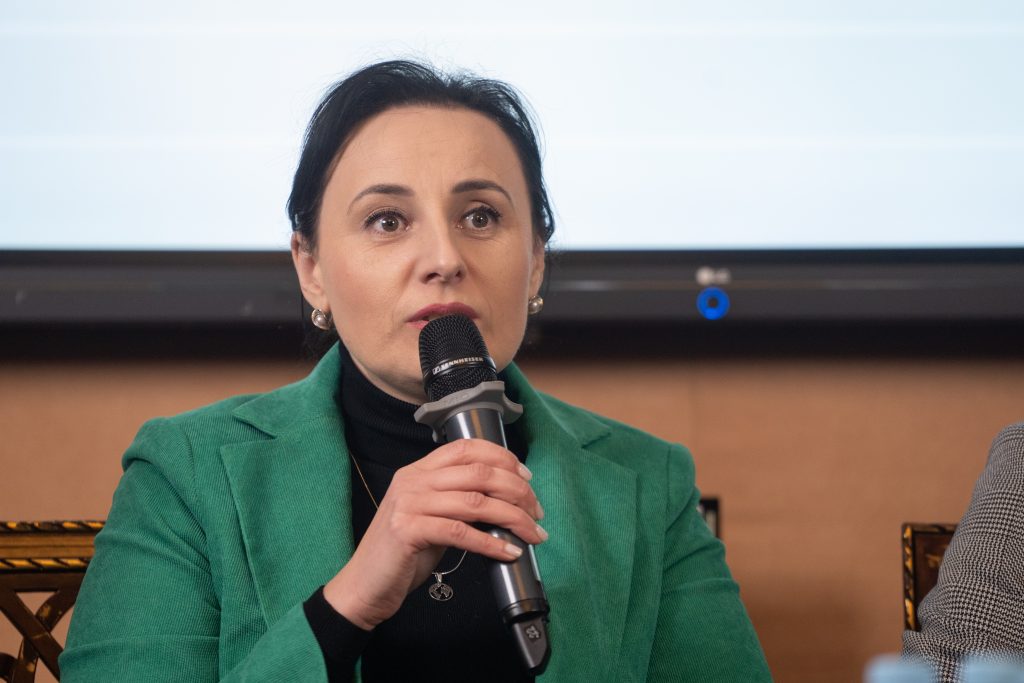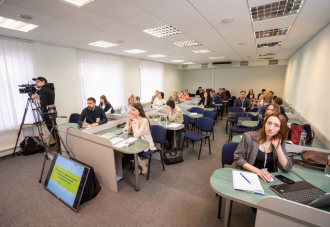What is the new dimension of volunteering in Ukraine, what do young people think about this field and what is the difference between volunteering and charity? Answers to these and other questions were given at the panel discussion “Volunteering – Charity – Humanitarian Aid: Different Tools, One Goal”, which took place on December 5 as part of the 11th Civil Society Development Forum.
It brought together representatives of the authorities, international, charitable organizations and NGOs. Journalist and volunteer Yaroslava Kravchenko moderated the discussion.
See the discussion video at the link
This event was held by CEDEM as part of the Project Ukraine Civil Society Sectoral Support Activity implemented by the Initiative Center to Support Social Action “Ednannia” in partnership with the Ukrainian Center for Independent Political Research (UCIPR) and Centre for Democracy and Rule of Law (CEDEM) with the support of the American people through United States Agency for International Development.
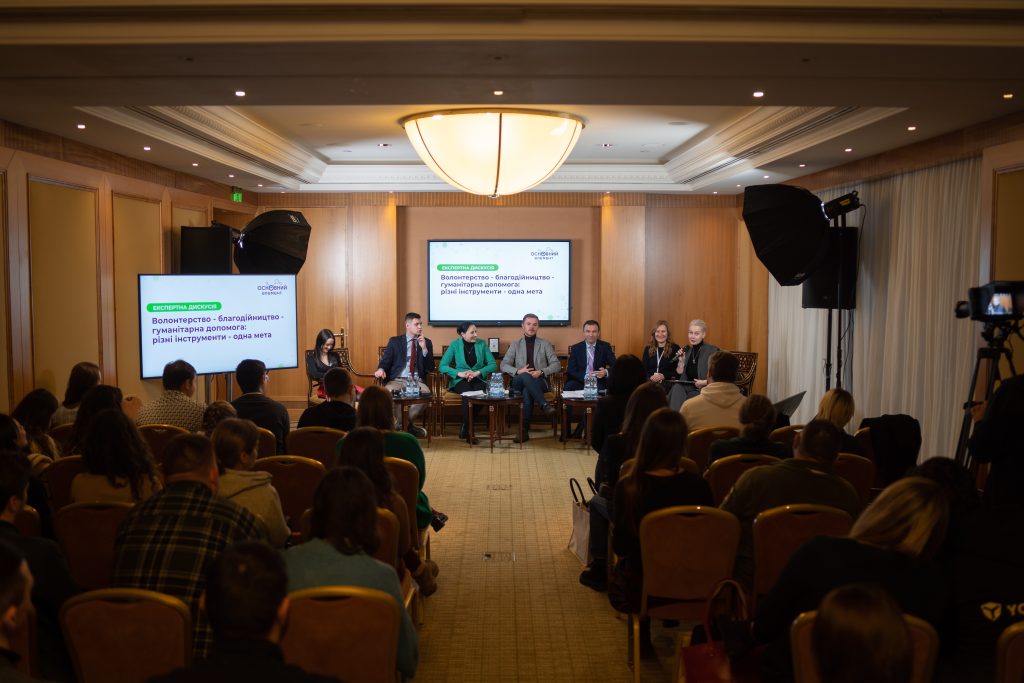
The panel was opened by Oksana Zholnovych, Minister of Social Policy of Ukraine. According to her, volunteering is first of all about public participation, active actions, finding some public initiative in accordance with the views and preferences. “But above all, a volunteer is an active and not indifferent person. It can be the philosophy of our new Ukraine,” she stressed.
Oksana Zholnovich voiced her hope that volunteering in Ukraine will become systemic. In particular, a status similar to that of “honorary donor”, which is given for a certain volume of donated blood, will appear.
We are talking about the status of “honorary volunteer” who has invested their work and effort. “Because in fact volunteering is about labor, time, effort, things that you invested personally. It’s not about money, because volunteering is not about paying. When you donated something to someone, you became a benefactor, not a volunteer.
But when you take these donations as part of the activities of the NGO, buy bread and take it to the elderly – that’s volunteering. When you helped these people buy medicine, take them to the shelter – that’s volunteering.”
The Minister stressed that she believes: In the future, volunteer experience will be mentioned in recommendation letters, volunteers will be given preference during admission to universities, and employers will pay attention to volunteer experience on CVs.
Our infospace is dominated by the topic of military volunteering, and it is a natural response to the Russian threat, said Roman Hryshchuk, MP of Ukraine. Because of this social volunteering, widespread all over the world, when a person is ready to spare 2-3 hours a week for some socially useful work, has been overshadowed. For example, work in a nursing home or assistance to a utility company to clean up a park.
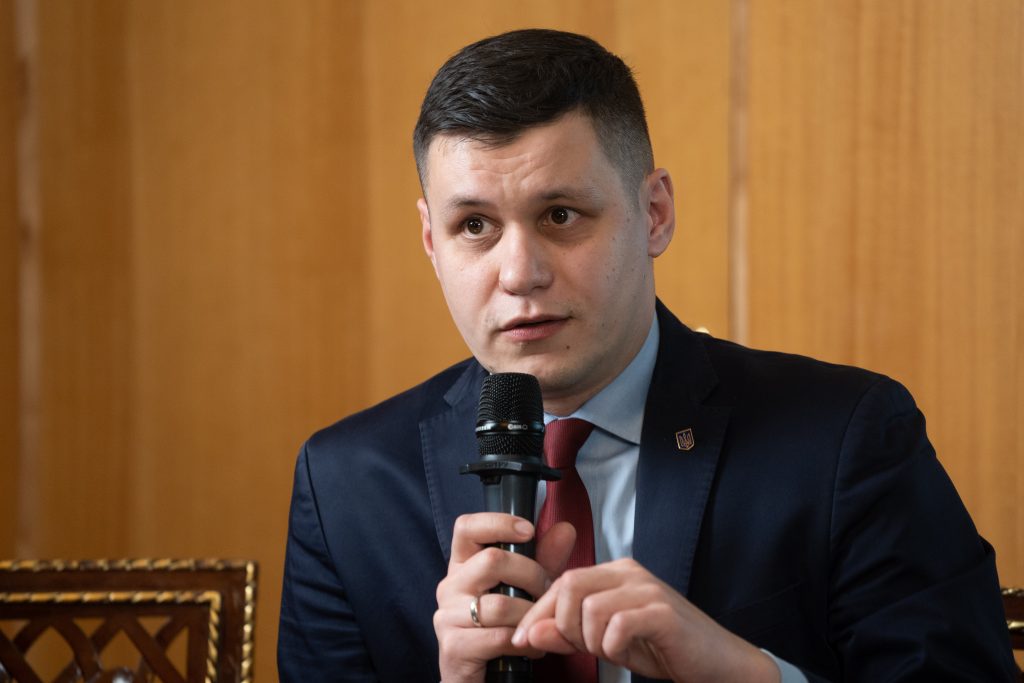
According to the MP, military volunteering “has turned into individual entrepreneurship” because people raise funds on personal bank accounts without registering a foundation, because it takes long and is associated with bureaucratic problems.
“Because volunteers are debureaucratized, they are able to quickly raise and spend what the state cannot. Even big foundations have a hard time responding that quickly. So the responsiveness and flexibility are at the highest level. And what is important, there are horizontal links that allow you to quickly meet the needs,” he stated.
Roman Hryshchuk reminded of the register of volunteers: when a person is on this register, this person will not pay taxes from the funds raised to help fight against the Russian aggression. The problem is that very few people who joined the sphere after February 24 are aware of this.
To get on the register, the volunteer must take a certificate from the bank, and then submit it to the tax service, along with an application, an identification code, and a photocopy of their passport. Now the MPs have passed a law which allows creating the option of registration through the Diia, and also reduces the number of documents which have to be submitted to be included in the register.
Maksym Kostetskyi, Head of Transport, Legal Adviser, Serhii Prytula Charitable Foundation, emphasized the role of volunteers in the victories of Ukraine. According to him, since 2014, they have helped to close large gaps in the supply for the Armed Forces of Ukraine. Volunteer assistance is still relevant now, as the number of defense forces has increased to a million people and the country’s economy is experiencing problems.
“There is no option other than private funding, which is volunteering in Ukraine. We believe that everyone in this country is a volunteer: Because you either donate money, or you donate some kind of humanitarian aid yourself, or you accumulate resources or create a charitable foundation,” he stressed.
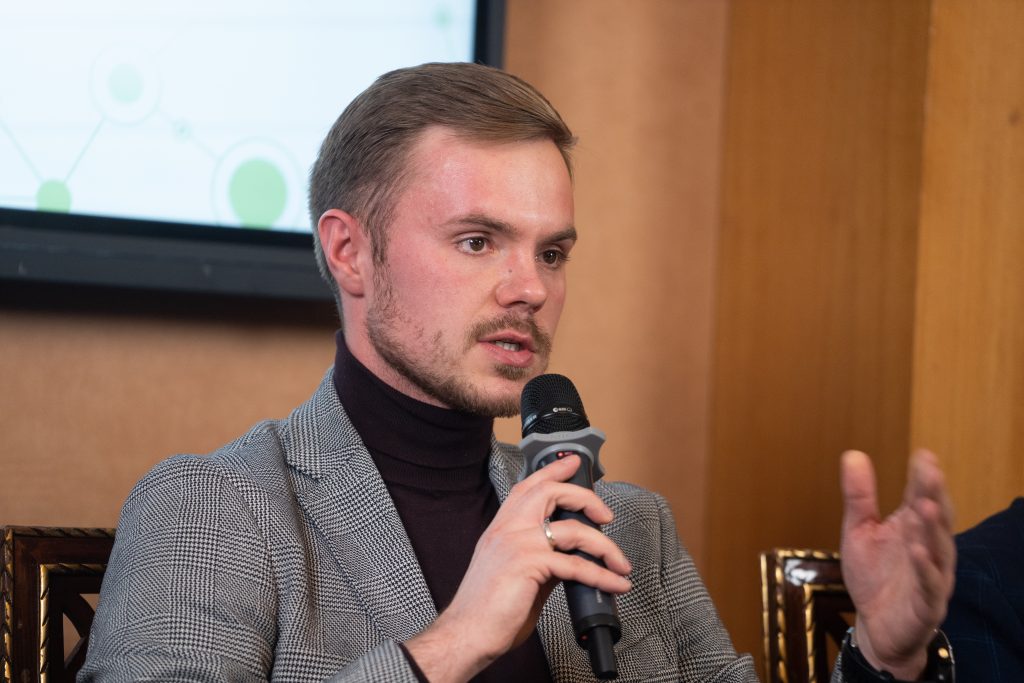
Maksym Kostetskyi advises distinguishing between volunteering under martial law and long-term volunteering. In the latter case, we need clear regulation, registries, the criteria of what falls under the volunteer assistance. All this needs description in more detail.
But right now the goal is to help the army win this war. This is why we need a presumption of innocence for volunteers.
Yuliia Tkachuk, Deputy Director of the USAID Dream and Act, IREX, spoke about research on youth and volunteering. For this purpose organizers conducted 7 focus groups in different territories: in frontline and rear communities.
“Qualitative study confirms all quantitative studies suggesting that there are a lot of young people volunteering, more than half. But 50% of people joined it for the first time. 20% of young people volunteer full-time, and there are cases where they quit paid positions and switch to volunteering full-time. 33% of young people don’t engage in volunteering, but they donate money and spread the word,” pointed out the speaker.
And while before February 24, most people associated volunteering with physical assistance to the military, now young people have expanded the concept. Thus, many respondents referred to volunteering as providing social, supportive services.
Also, (although controversial) charity is considered to be volunteering. Young people point out “informational volunteering”: reposting materials on social networks, counteraction to fakes, SMM or advertising for non-profit organizations.
But the answers to the question “Can donations be considered volunteering?” showed divided opinion. Some young people said ‘yes’: because people can’t join the action themselves, they donate funds. Others answered ‘no’, citing the legal definition.
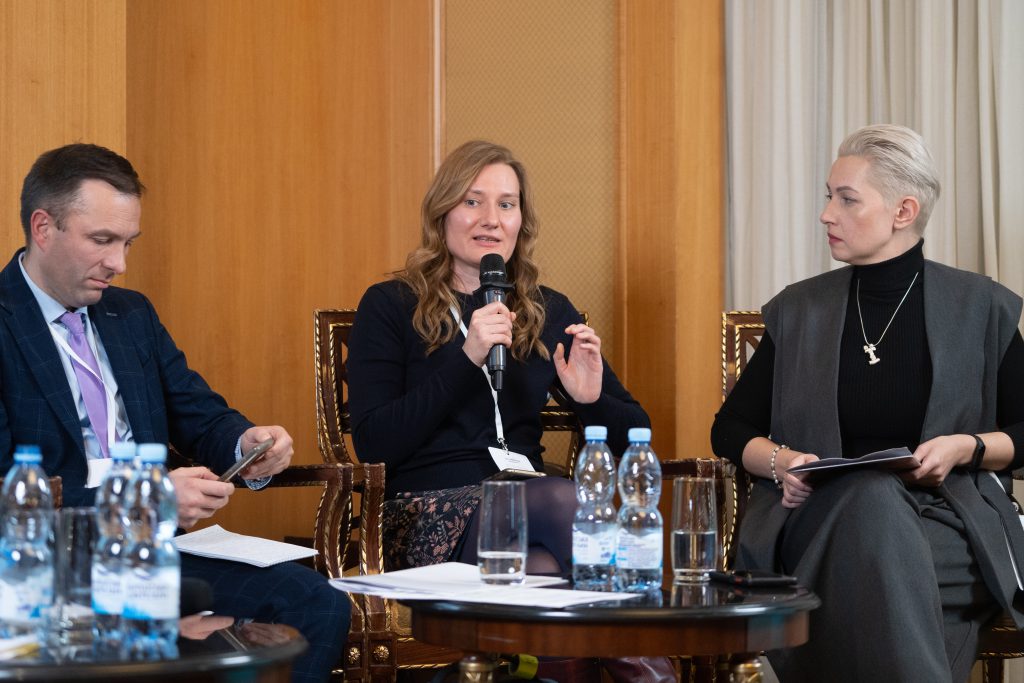
Yuliia Tkachuk summed up that young people see: volunteering in Ukraine will not cease after victory. In the future, volunteers will help in different areas – from the reconstruction of the country to economic changes.
However, this is not the only study of volunteering. There is also an international World Giving Index. According to Anna Bondarenko, head of the Ukrainian Volunteer Service, for a long time Ukraine ranked 70-80 in it. And this year it is one of the TOP-10.
“We are the only country in Europe that got in the Top-10. Interestingly, on the one hand there is a lot of pride that we as Ukraine made it to the Top-10. On the other hand, when we started looking deeper, we can see that although we have this huge mobilization, there are challenges, threats, obstacles; they are smaller though.”
According to her, it is difficult for people to stay in the field and grow from a novice volunteer, move on to some kind of a group initiative, then register divided opinion, receive funds for organizational development, and raise money consistently and systematically.
“All these five years our strategy has been diversity in volunteering, showing, for example, pet advocacy volunteering, which is now consistently at the top. We started talking about volunteering in difficult areas such as work in probation, that is, with prisoners who will soon be released,” she said.
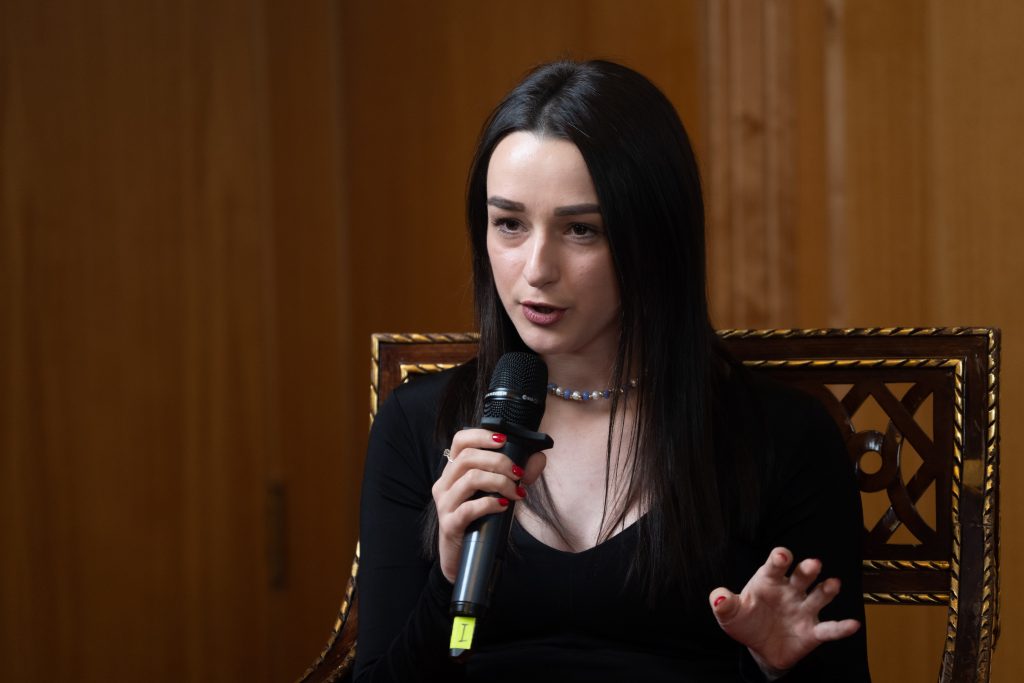
Anna Bondarenko emphasized that there are various forms of educational initiatives and workshops. For example, when a volunteer is engaged in football club with children in villages, even though the coach and their subordinates may not consider it volunteering.
At the same time, strategic issues of development should not distract volunteers from legal and tax issues, Maksym Latsyba, Head of Development of the Ukrainian Center for Independent Political Research, emphasized.
“January 1 is coming, the end of the tax year, and we will recall many articles of the Tax Code, because inspectors will definitely come to us. Therefore, the issue of safe volunteering is important. The Volunteer Summit was held yesterday, and Roman Hryshchuk said he was doing it [improving legal conditions for volunteers] so that “no one would go to jail”.
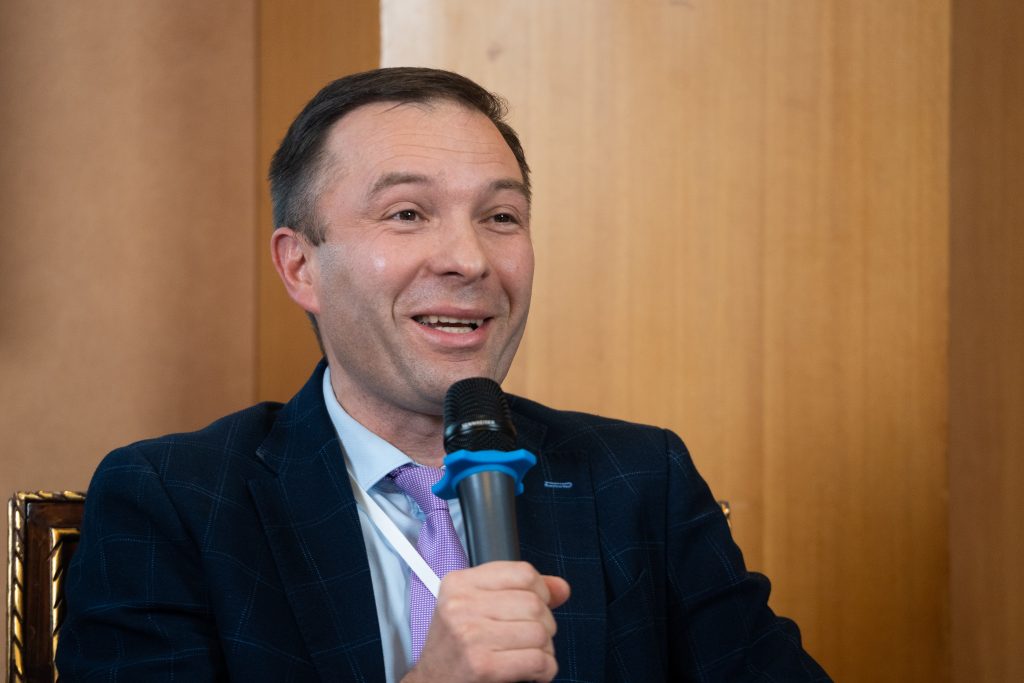
According to him, an important message for volunteer organizations is as follows: Get your bookkeeping in order or hire an accountant. Some recommendations include self-sufficiency, that is, taking care of yourself and drawing up documents correctly.
At the same time, the state has given a legal way out: get into the volunteer register. Then people will not pay taxes and personal income tax on the funds raised. However, it is necessary to have documents confirming that you have bought a drone, a car or medicine using these funds.
The event ended with a Q&A session.
The event was held by CEDEM as part of the Project Ukraine Civil Society Sectoral Support Activity implemented by the Initiative Center to Support Social Action “Ednannia” in partnership with the Ukrainian Center for Independent Political Research (UCIPR) and Centre for Democracy and Rule of Law (CEDEM) with the support of the American people through United States Agency for International Development.
